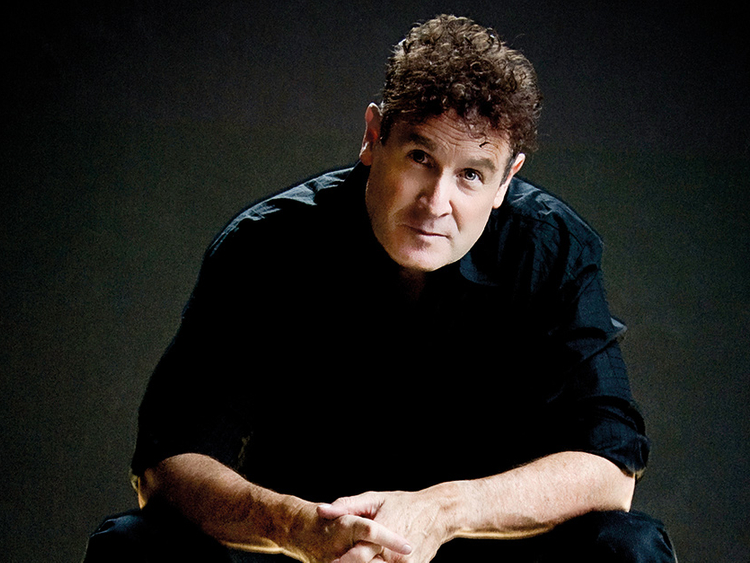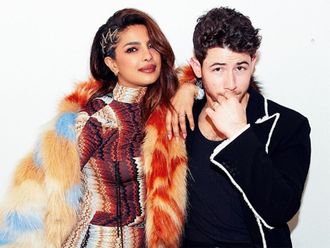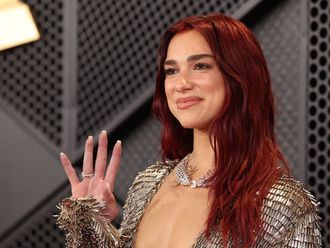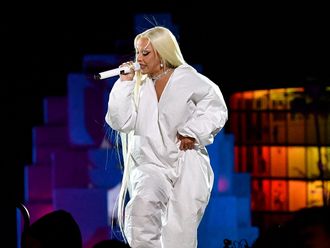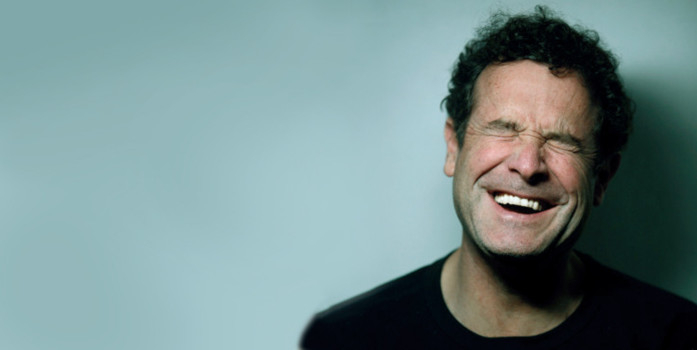
“Dance is a language that enables you to articulate your feelings,” says the Grammy-nominated South African singer-songwriter Johnny Clegg, who is known as much for his infectious blend of pop and Zulu tones as he is for his activism.
That’s what he’s ready to prove to the UAE on September 20, when he brings his The Final Journey tour to Dubai.
Clegg formed the band Juluka in 1969 with Zulu musician Sipho Mchunu, during a time of racial segregation in South Africa. The challenge for them was just getting heard. The duo released Universal Men in 1979. In 1985, when Juluka split up, Clegg formed another crossover band, Savuka. The first Savuka album was Third World Child, which broke sales records in France, Switzerland and Belgium in 1988. This was followed by Shadow Man (1988); Cruel, Crazy Beautiful World (1989); and Heat, Dust and Dreams (1993), which was also nominated in the World Music Album category at the Grammy Awards that year. The year 1993 was also when Savuka broke up.
Since then, Clegg has undertaken a number of solo projects, besides winning awards such as the Officer of the Order of the British Empire, the South African Order of Ikhamanga and the French Chevalier des Arts et Lettres (Knight of Arts and Letters).
Clegg, who is also a certified anthropologist, believes “music is an international language. Music is the one thing [that] can penetrate [your] world’s view and can penetrate your fixed ideas about things.”
Ahead of his show at The Dubai Opera, 64-year-old Clegg, whose activism has won him the moniker ‘the white Zulu’, talks music, dancing with Nelson Mandela and existentialism.
Here are excerpts from the interview.
What can Dubai expect from the show?
My show is an autobiographical show. It has got video footage of various events that shaped my career, and obviously all of my hits. Together with dances, so it’s a very audio-visual presentation. And of course little small stories and anecdotes as well thrown in as well.
You’ve had a long and prolific career. What’s your favourite anecdote from it?
I wrote a song for Nelson Mandela, [Asimbonanga], in 1986 in South Africa during the state of Emergency and the song was banned. And then 11 years later, [in] 1994, I was touring in Germany and we were requested by the German government to… play the show, [to] close a conference that had been held regarding NGO work in Africa, and so we arrived and… finished our show with the song that I wrote for Mandela and in the middle of the last song the crowd roared and I thought, ‘wow they know my song, that’s amazing’. But actually Mandela was walking on stage behind me. And then I could just see them pointing, and I turned around — he had been the keynote speaker at this conference and he came on stage and danced and sang a song with me.
How has the music industry changed in the 40-odd years that you’ve been a part of it?
When I started out in the late ‘70s and ‘80s, there wasn’t very much competition for entertainment. We had football on the weekend, we only had very big games that people would attend every two or three months — and music was huge. You could always get a job playing in a club or you could put on shows on the weekend. There were also lots of venues which would allow you to perform. Today, you are competing with video gaming, live broadcasts, international sporting events. You are bombarded with entertainment… we have so much technology and so much distraction. It’s really hard to get people to get out of their houses to watch your show. And artists have to fight with so many other people for that little entertainment dollar. And then you find that because music has been slowly reduced in its footprint, that people who used to have halls — venues where people could just play — they are closing down or they turning into something else. It’s a tougher place in the world altogether than it was in the ‘70s and ‘80s.
So what’s your advice for struggling artists?
My son [Jesse Clegg] is struggling now. Unfortunately, in the world that’s supposed to be linked to digital medium platforms, there’s so much noise out there, it’s hard to really get known. And so one has to rely on getting on YouTube, getting on Facebook, getting on Twitter, getting on Instagram — all these digital platforms are hugely important for young people. You have to become smart in the digital world.
How has anthropology informed your music?
I think it’s been very important. It’s shaped what I do — I sing and speak and compose in [the] traditional Zulu language. Part of my show is to show how these instruments [that we use] were Africanised, they were reconfigured, new ways of playing were discovered and those forms were the forms that excited me.
You are a cancer survivor — how did battling the disease impact your world view?
Anybody who has a life-threatening disease has to go through a kind of existential accounting. And go through your books and say, ‘OK, where am I now?’ What does tomorrow hold for me. I think it made me more aware of each day and what each day can bring. And find out a lot more about life and I’m more open to other experiences… I also think it makes you more aware of the value of relationships.
You call this tour The Final Journey. What comes next?
I will still put out music, you know, records and albums… I just finished six songs, seven songs, and I’ll put out an album — in September I have secured a global deal with Universal for the release of my new album. And I will probably put out another one next year. I’m finishing my autobiography; it should be out sometime in the middle of next year. And I’m a trained anthropologist and I often give lectures and talks to different private groups — that will probably increase a bit. And finally, I’m a director of an environmental recycling company, so I am an entrepreneur and that’s part of my life.
—————
Don’t miss it!
Johnny Clegg performs at The Dubai Opera on September 20. Tickets to the show start at Dh250.



